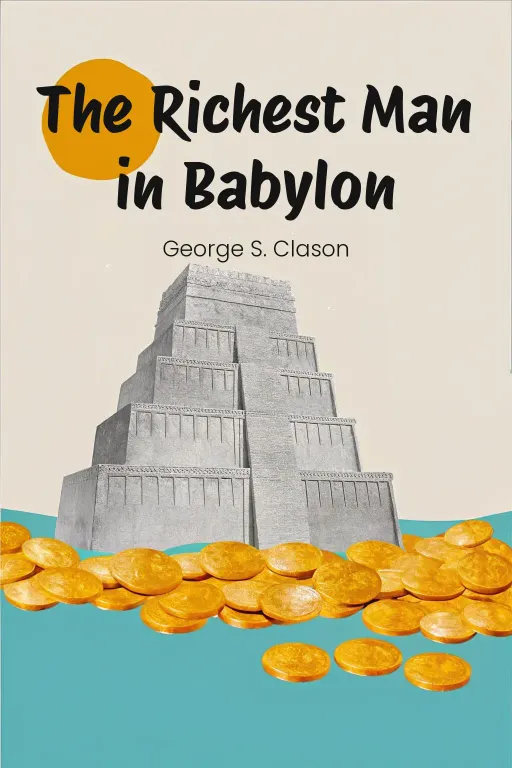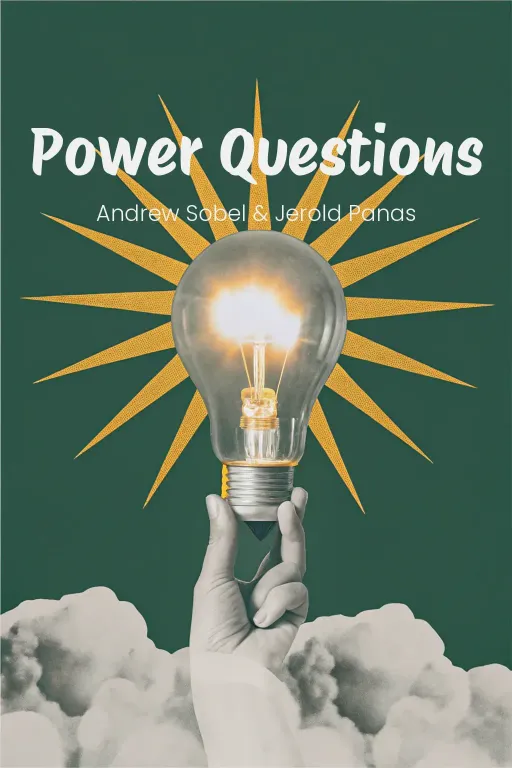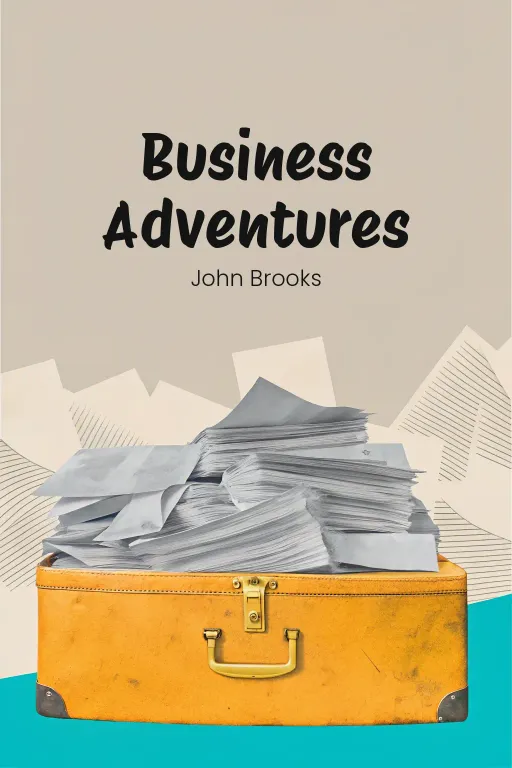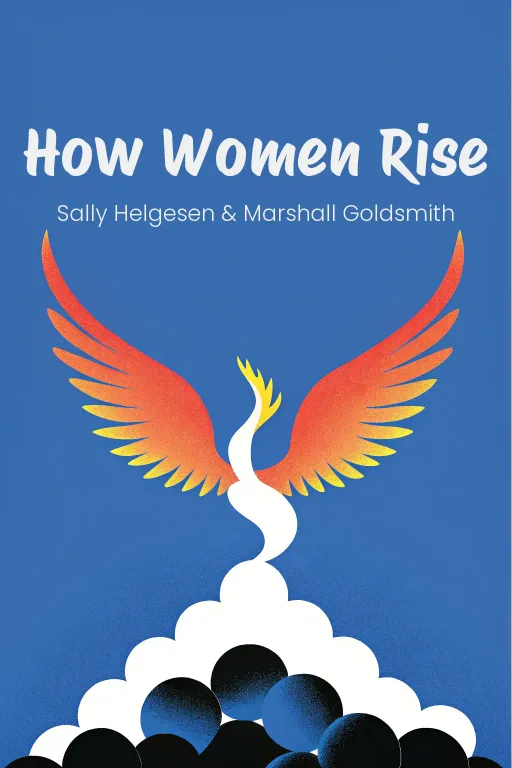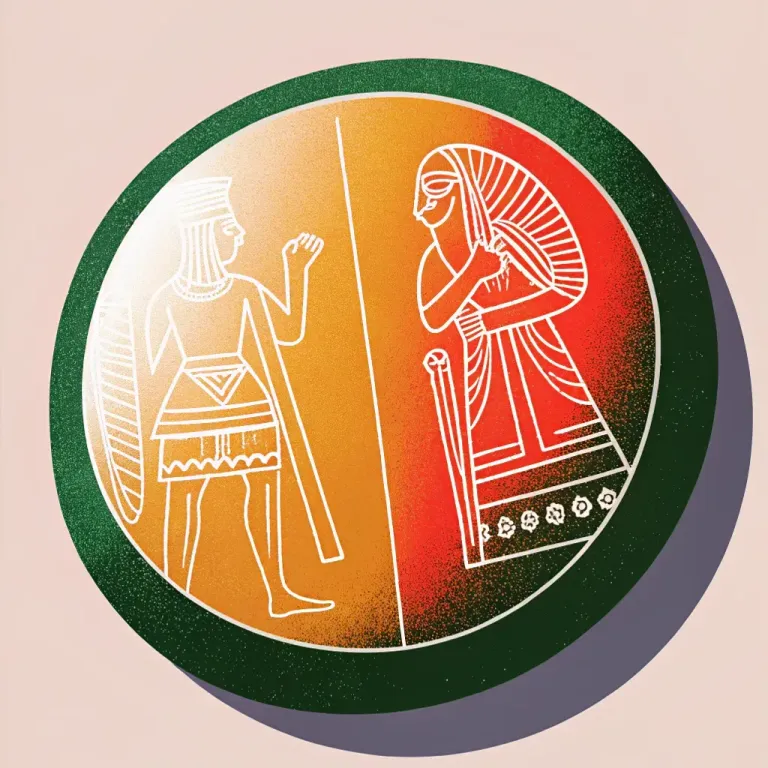
Babylon's Blueprint: Grow Wealth Today
Podcast by Let's Talk Money with Sophia and Daniel
Now Revised and Updated for the 21st Century
Babylon's Blueprint: Grow Wealth Today
Part 1
Daniel: Hey everyone, welcome to the show! Today, we're heading way back in time to ancient Babylon. You know, the city famous for its hanging gardens, but also, believe it or not, for its financial savvy. Sophia: Yeah, Babylon! Seems like they figured out money way before all the credit card craziness and flash sales we deal with now. Color me intrigued. Daniel: Totally! We're going to be digging into George S. Clason's book, “The Richest Man in Babylon”. It’s packed with super relevant advice about saving, smart spending, and investing, all told through these really engaging stories. It's like getting advice from a financial guru, but in a more historical package. Sophia: Right, so Arkad, the wealthiest dude in Babylon, is going to tell us the secrets to getting rich, like saving a chunk of what you earn and not blowing it all on silly stuff. Makes sense, although I wonder if Arkad ever had to stress about paying for, you know, crazy internet bills. Daniel: Exactly, Sophia! And that's what's so great about it! The advice is super simple, but also “really” powerful – build good financial habits, make smart investments, and just keep growing steadily. Sophia: Alright, so today we’re breaking it down into three main areas: first, why saving is so crucial; second, some investment strategies that actually work; and finally, how to develop the right kind of mindset to keep going when things get tough. Think of it as planting a garden, but instead of flowers, you're growing your wealth. Daniel: Precisely! No matter if you're just starting to save or you're trying to get your spending under control, there's definitely something in this for you.
Financial Discipline and Saving
Part 2
Daniel: So, picking up where we left off, let's dive into financial discipline and saving. This really is the bedrock of Arkad's philosophy, the essential starting point for financial independence. Clason puts it so simply: “A part of all you earn is yours to keep.” Just that one idea can revolutionize how people see their money. Sophia: Yeah, simple on paper, right? But honestly, how many actually “do” it? “Pay yourself first” seems to get lost somewhere between crazy high rent and the siren song of next-day delivery, doesn’t it? Daniel: Exactly! That's why the principle is so crucial—it reframes saving as a must-do, not a maybe-later. Arkad sees it as paying yourself before anyone else. It's about prioritizing your future over those fleeting little pleasures you could have now. Sophia: Okay, brass tacks time. He says save at least a tenth of your income. Why that number? Why not, say, 5%? Or 20%? What's so magical about one-tenth? Daniel: Good question. One-tenth is achievable across different income levels. A higher percentage can feel…daunting, especially when you're just starting out or you're struggling. Less than 10% might not build enough momentum for you to see real results. Arkad's genius is finding that balance: you introduce financial discipline while still having enough for your needs, even small luxuries. Sophia: Balance, sure, but what if your "essentials" are your entire income? Rent, groceries, bills…where does that 10% come from? Daniel: Ah, that's where "controlling thy expenditures" comes in. Arkad really stresses the difference between wants and needs. A lot of times, it's not that people don't earn enough; it's that they're unknowingly spending money on things that don't add lasting value. That daily fancy coffee, for example—seems small, but it adds up. Sophia: So, he’s basically the OG Latte Factor guy, huh? Modern financial planners must love this. But what if cutting those little expenses still feels like a drop in the bucket, especially if you're living paycheck to paycheck? Daniel: That's where the beauty of starting small comes in! Clason says that saving even one copper piece out of ten, not some huge amount, can change your mindset. It's about building the habit. The act itself builds momentum, builds confidence, which then snowballs into bigger results over time. Consistency is key. Sophia: Skeptical, but intrigued. Let’s talk methods. How do you actually make this stick without raiding the savings the minute you're tempted? Daniel: Arkad was all about simple, structured methods. Budgeting is the first step. He suggests splitting your income into categories: one-tenth goes to savings, two-tenths for paying off any debt you have, and the rest for necessities and, yes, a little fun. These days, that could be setting up automatic savings transfers, so the money is "paid to yourself" before it even hits your checking account. Sophia: Right, out of sight, out of mind. Smart. Though…Arkad's Babylon didn’t have credit cards or subscription fees quietly draining his account every month, did it? Daniel: True, but the principles still hold up. Take Dabasir’s story, for instance. He didn’t start from a good place: he was deeply in debt, even fled Babylon to escape it. Talk about hitting rock bottom! Sophia: Right, the guy who literally enslaved himself because he had zero impulse control. Fantastic role model! Daniel: Okay, but to Arkad’s credit, Dabasir’s story is about how even the worst situations can be turned around with discipline. When he came back to Babylon, he saved that one-tenth and specifically put two-tenths towards paying off his debt. It was a slow climb, but the system worked. He rebuilt his financial security and his reputation. Sophia: Kudos to him for sticking with it. But it sounds exhausting! Did he ever just want to throw in the towel? Daniel: Well, Clason doesn’t present it as self-denial but as empowerment. By making a budget and allocating funds deliberately, Dabasir took back control—not just of his finances but of his entire life. That’s the psychological benefit Arkad champions. When you prioritize saving, you go from being reactive to being proactive, and you have options. Sophia: I see the motivation in turning saving into a form of self-respect. But we can’t ignore the fact that this requires battling procrastination–which is pretty much a universal struggle. Did Arkad have a trick for that? Daniel: Absolutely! The key is to start small, make it unmissable. One of Arkad’s famous lines is, “Wealth, like a tree, grows from a tiny seed.” No need to overhaul your finances overnight; just set aside even the smallest amount, and that is already a win. Overcoming that initial inertia is more important than the amount itself. Sophia: So basically, make saving so easy you can’t not do it? I can get behind that. It’s like tricking your future self into being responsible. Daniel: Exactly! Saving empowers you mentally and financially—it builds confidence, reduces stress, and creates flexibility to seize opportunities. And your savings aren’t just a fallback for emergencies but also a foundation for growth when those opportunities come around. Sophia: I see the logic. It’s like clearing space in your garage so you can actually build something instead of just storing clutter. But let’s be real: getting people to actually stick to this? That’s the real challenge. Daniel: Yep, no argument there. But that's why Clason emphasized the mindset shift: saving isn't about what you can't have; it's about protecting your future. It's the first step in building wealth and arguably the most impactful one.
Wise Investment and Risk Management
Part 3
Daniel: So, once you've built up some savings, the next step is really about managing it wisely and helping it grow. That brings us to a key idea in "The Richest Man in Babylon": smart investing and managing risk. What's so great about Clason’s advice is that he doesn’t just say, "Save for the sake of saving". He actually encourages us to make that money work for us. It's like putting your gold to work, so it can earn even more gold! Sophia: Right, so we're moving on from the piggy bank to the investment portfolio. I guess Arkad is saying it's not enough to just hide your coins under your mattress, huh? Daniel: Exactly! Savings are just a starting point. You build real wealth through smart investments. Clason's stories highlight this with the Five Laws of Gold. They're like a guide for growing your wealth while avoiding common money mistakes. Like, one of the basic principles is: "Gold works hard and happily for the wise owner who finds it a good job to do." Basically, money that's just sitting there isn't doing anything. You need to put it to work responsibly so it can generate returns. Sophia: That makes sense. But it sounds like Investment 101, right? Find a good opportunity, make your money work. The real question is, how do you tell if an investment is actually a good one—or just a risky gamble in disguise? Daniel: That’s a great question, and Clason actually tackles it. One of the most important things he talks about is knowledge—he even has a whole law about it: "Gold runs away from the person who invests it in businesses they don't know." Simply put, never invest in something you don’t understand. And always ask for expert help when you’re not sure about something. Sophia: Ah, so don’t let your cousin—who’s suddenly a crypto expert—convince you to put all your savings into the “next big coin,” right? Daniel: Precisely! And Clason really makes that clear with a story. Arkad tells about a friend who got greedy and trusted a bricklayer to buy rare gems for him to trade. It was a disaster! The bricklayer, of course, didn't know anything about jewels and ended up wasting the man's money on fake glass. The lesson? Always trust people who know what they're doing. Don't give your money to amateurs. Sophia: Scary, reminds me of so many modern scams. You could update that story a little bit and turn it into an email phishing scam But it’s not just not knowing enough that gets you into trouble, is it? What about wanting too much? I bet Clason wasn’t a big fan of greed either. Daniel: Oh definitely not. Greed can really mess with your judgment and lead you to make terrible, risky decisions. Arkad often warns against investments that promise ridiculously high returns. There's another story about a young merchant who was tricked by a con artist who promised huge profits from foreign trade. The merchant ignored everyone and invested all his savings. The con artist, of course, disappeared with all his money. Arkad’s wisdom here is timeless: "Gold runs away from the person who tries to force it to make impossible earnings." Sophia: Timeless wisdom, sure! But, I mean, it probably was easier to avoid scams back in Babylon. They didn't have Instagram ads pushing sketchy side hustles. Daniel: True, but scams, no matter when they happen, all use the same tricks: greed and not knowing enough. Clason's main point is: really think about opportunities carefully. If something sounds too good to be true, it probably is. Nowadays, think of Ponzi schemes or those dubious get-rich-quick investments. The most important thing is to do your homework and get advice from people you trust. Sophia: Speaking of trust and advisors, though, how do you know when you're being careful or just missing out? I mean, if you spend too much time thinking about something, you might lose out on some good possibilities too. Does Clason talk about that balance at all? Daniel: Yes, he does! Arkad’s not saying to avoid all risk. He’s saying to think about risk intelligently. You don’t want to bet everything on one risky opportunity. But fear shouldn’t keep you from doing anything with your money either. Instead, try to get consistent, reliable returns. Clason uses a great image: gold multiplies when it's allowed to work "under the guidance of reasoned decisions." He gives the example of investing in ventures that promise steady, gradual profits. Back in Babylon, that might mean lending money to reliable merchants or funding trustworthy trade routes. Sophia: Sounds like Arkad would love index funds! Low risk, steady returns, passive income… it's kind of like his principles. Daniel: That’s a great way to put it! With index funds, you’re spreading your money out, so you can be sure that it grows over time. This gradual growth—what Clason calls “the power of gold multiplying under careful investment”—is useful even today. Warren Buffett himself suggests things like that, which shows that building wealth is a marathon, not a sprint. Sophia: Marathon, huh? That’s a nice way to say "it takes forever!" Jokes aside, I get it. But even if you follow all this advice, people still lose money. Did Clason have any ways to reduce those losses that are bound to happen? Daniel: Absolutely. Clason’s strategy depends on one important safeguard: protect what you start with. Whenever Arkad talks about investing, he always says to make sure you recover the initial money you invested. For example, there's a story about a craftsman who invested in rare animals for trade without really knowing the risks involved. The animals got sick, and the craftsman lost everything. The message is clear: don't take risks that could wipe out your entire savings. Doing your homework and diversifying your portfolio—these aren't just fancy words; they're essential to financial survival. Sophia: Losing everything you put in does sound like a financial tragedy of ancient Babylon! But I’m guessing Arkad didn’t put quite like that! Anyway, these examples are all about protecting what you have, right? As much as about growing your wealth, it’s also about making sure it doesn’t disappear. Daniel: Exactly. Think of it this way: growing wealth has two parts. First, make returns on your savings; second, make sure those savings are protected from loss. That's why Clason also says keep it simple—chasing after too-good-to-be-true schemes just increases the risk. His advice to focus on what you understand, trust trustworthy experts, and watch your investments, is a timeless wisdom. Sophia: So, in modern language: start small, stick to what you know, automate and diversify where you can, avoid get-rich-quick schemes, and maybe talk to someone in finance who isn’t your “crypto-expert” friend. Did I miss anything? Daniel: That’s pretty much it! Arkad's advice is about creating a foundation of security and watching it grow over time. Wealth isn’t about luck. It’s about choices, caution, and doing things consistently. And that’s what managing risk in investing is all about.
Work Ethic and Personal Growth
Part 4
Daniel: Once you've got a good financial foundation and understand investing, it’s time to think bigger about personal responsibility and growth. That's where Clason gets “really” interesting, arguing that financial independence isn't just about the money. It’s deeply connected to your work ethic and how you grow as a person. We're talking about the mindset and habits that drive long-term success. Sophia: So, it's not just about hoarding gold, but about who's holding the bag, so to speak. I get it. But how exactly does Clason define "work ethic"? Is it just a simple "work harder and get rich" message? I hope there's more depth to it. Daniel: Absolutely, there's more to it than that. Take the story of the enslaved baker—it “really” highlights resilience and ambition. He starts out with nothing, basically no control over his life, and then transforms his situation through sheer will. He doesn't just accept his fate, he actively looks for ways to improve it. Clason uses him as an example of how a strong work ethic, combined with a little creativity, can turn tough circumstances into an opportunity. Sophia: This enslaved baker... what's his story exactly? Clason does love his anecdotes. I'm betting there's more to it than just a rags-to-riches thing. Daniel: Definitely. So, this young man is enslaved, and he's basically at the lowest point imaginable. Everyone around him has given up hope, right? They're just crushed by their labor, but he makes a conscious decision not to give in. When a guard—Godoso—suggests he try to be a “good worker” to attract a better owner, he jumps on that as a starting point. It’s ambition meeting opportunity. Sophia: So, he's rebranding himself. Smart move. But how does that turn into financial success? I doubt any "good worker" in Babylon just waltzed out into a life of luxury. Daniel: No, it's a process. He gets sold to a baker named Nana-naid, and instead of seeing it as just another dead-end job, he uses it as a chance to learn. He makes his position, which could have been stagnant, into a dynamic one, “really” mastering his craft and brainstorming new ideas. What's “really” inspiring is his resourcefulness. He doesn’t just bake; he pitches a plan to sell honey cakes in the afternoons and split the profits. Sophia: Wait a minute. So, he wasn't just clocking in and out? He created a side hustle within his regular job? That's pretty bold. Did Nana-naid agree right away? Daniel: He did. The baker saw the potential; it was a win-win. By putting in extra effort in the afternoons, he demonstrates what we’d call entrepreneurial spirit today. He was working smarter, not just harder, and slowly gaining his independence. Clason is “really” driving home the idea that it’s not your circumstances that define success, it’s your approach. Sophia: That definitely aligns with the modern "hustle" mentality. “Start small, think big,” that kind of thing. But where’s the “real” turning point? Selling honey cakes—was that “really” enough to change his life? Daniel: That was just the beginning. Remember, success isn’t just about making money. It's about building the habits and mindset that lead to sustained progress. He starts building relationships, like with Arad Gula, a merchant who not only buys his honey cakes but also recognizes his drive and perseverance. Those relationships build on each other, opening doors that he wouldn't have found otherwise. That’s “really” the key: ambition drives effort, effort creates opportunity, and opportunity builds momentum. Sophia: A nice feedback loop. And a subtle way to show how resilience connects to ambition. But, you know me, I have to be skeptical: is this story too neat? Most people in “really” tough situations don’t have a supportive Nana-naid or a friendly merchant cheering them on. Daniel: It’s a fair point, but the underlying lesson is what’s important, not the specific details. Clason isn’t ignoring the realities of systemic issues. Instead, he’s emphasizing the importance of taking action wherever you can. Not every story has such a clear path, but the message is universal: a proactive attitude and a strong work ethic are powerful in any situation. Sophia: Okay, so how do we apply this today? Let’s say I'm juggling two jobs, maybe some gig work on the side, and I have zero time to "sell honey cakes," metaphorically speaking. How does Clason’s advice help someone who can barely stay afloat? Daniel: Well, the first thing is to see obstacles as opportunities. This doesn't mean pretending the struggle isn't there or oversimplifying solutions, but finding growth where you can. Even in difficult circumstances, gaining skills or refining your expertise sets the stage for better opportunities. The enslaved baker's mastery of his craft is a prime example. Sophia: But mastering something takes time, and most modern gig workers aren’t exactly apprenticing to master bakers. They're delivering packages or driving people around—how do you turn that into something bigger? Daniel: Opportunity starts small. In today’s world, it could mean dedicating even a little time to upskilling; taking an online course or developing a skill that's in demand. Just like the baker used his afternoons to earn extra, today you might use online platforms to grow a side project or get certifications that open doors. Sophia: Interesting. Makes you think the gig economy itself is Babylonian in a way—a chaotic mix of opportunities, but only for those who know how to navigate it. Daniel: Exactly! The other critical part of Clason’s framework is mentorship and collaboration. Nana-naid wasn’t just a boss; he was a supporter of growth. These relationships, whether in ancient Babylon or today, make the path forward easier by offering advice, encouragement, and sometimes even financial support. Sophia: So building partnerships or finding a mentor turns individual effort into something bigger. All right, I'm convinced; this baker's story might actually be pretty relevant. But let's not forget the mental side here. All this resilience and ambition sounds exhausting; how do people actually keep it up? Daniel: Clason would say the answer lies in purpose. The enslaved baker didn’t just work hard for the sake of it; he had a vision of freedom and financial independence. Having a clear "why" keeps you focused on the process. Modern psychology backs this up: people driven by intrinsic goals are more likely to persevere and succeed. Sophia: That makes sense. No one wants to run a marathon without knowing where the finish line is. And it helps if there's a little support along the way, like Arad Gula recognizing his hard work. Daniel: Precisely. It’s a combination of a clear purpose, resilience when things get tough, and a dedication to improvement. Add in supportive relationships, and you create a sustainable engine for growth. That’s the heart of Clason’s wisdom—success isn’t a destination; it’s a habit, a mindset, and a series of choices built on top of each other.
Conclusion
Part 5
Daniel: So, to bring it all together, “The Richest Man in Babylon” really does offer these timeless lessons on financial discipline, smart investing, and the power of ambition and hard work to transform your life. You know, we've talked about how setting aside that tenth builds a foundation, how smart investments grow it responsibly, and how your personal growth really drives long-term success. Sophia: Right, and look, the world's changed quite a bit since Babylon, from chariots to, you know, ride-sharing, but these core principles still hold up: save consistently, invest intelligently, and see challenges as opportunities. Simple enough to say, but it's all about building those habits, isn’t it? Daniel: Absolutely. So, the real takeaway here is to start small. Even if it's just saving that first dollar or learning a new skill, progress always begins with that one step. Clason says it perfectly: "Wealth, like a tree, grows from a tiny seed." So, the question is, what seed are you going to plant today? Think about it! Sophia: And look, it's not about following everything perfectly, right? It's really about getting some momentum going. Even one small action can really reshape your financial future. Daniel: Exactly. Thanks for joining us on this trip to Babylon! Until next time, keep building those habits, and dive deep into the kind of wisdom that really lasts. Sophia: Yeah, see you next time, everyone!
